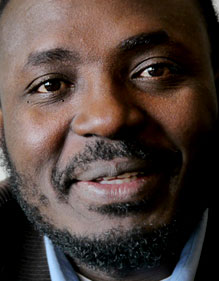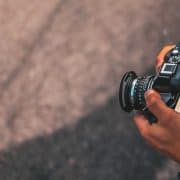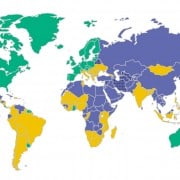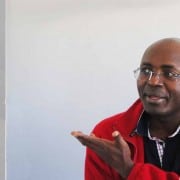|
Getting your Trinity Audio player ready...
|

For years Angolan investigative journalist and activist Rafael Marques de Morais has toiled to expose corruption and human rights violations in that country. His hard-hitting blog Maka Angola is widely considered to be the authority on corruption, including nepotism and money laundering, in Angola. “Maka” is “problem” in the local language of Kimbundu.
The 44-year-old award-winning writer will soon be on trial for criminal libel and defamation charges in a case that has dragged on for years. The charges stem from an exposé in his 2011 book Blood Diamonds: Corruption and Torture in Angola, in which he accused military officers of colluding with private mining companies in torture, murder and other human rights violations over an 18-month period. Accordingly, he filed criminal charges with the Angolan attorney-general against those whom he found to have committed the crimes in a "wilful, intentional and conscious manner".
His case failed in court, and it earned him, and his Portugal-based publisher, the lawsuit filed by seven generals, two mining companies and a security company. The case, first brought in Portugal, was thrown out of court, with the court ruling that it contravened his constitutional right to expression. Undeterred, the generals are now seeking hundreds of thousands of dollars in damages under a criminal libel lawsuit in Angola.
Over the years, De Morais has been the victim of numerous cyber-attacks, physical attacks to his person and his equipment, lengthy detention in jail, and a ban on travelling abroad, which was in place for nearly a year – none of it has frightened him off. Delivering the Carlos Cardoso memorial lecture at Wits University in November 2014, he said: “I have made it my mission to expose, through my investigations, the scourge of corruption, which is robbing the country of billions of dollars a year.”
De Morais is shortlisted for this year’s Freedom of Expression awards in the journalism category. He has also received the Percy Qoboza Award for Outstanding Courage from the National Association of Black Journalists in 2000, the Civil Courage Prize from the Train Foundation in 2006, and the Reagan-Fascell Democracy Fellowship from the National Endowment for Democracy in 2011. In 2013 he received the Transparency International Integrity Award, an accolade that was bestowed this year on South Africa’s public protector Thuli Madonsela. The following year he was the co-recipient of the Loeb Award for international reporting.
Travesty of justice
With his trial back in court on 24 March, De Morais enjoys the support of activist organisations. Since he documented the alleged crimes and human rights violations in his book, the organisations have been arguing that the case against him is baseless because his research led him to reasonably believe that the generals were criminals. They argue that the case violates his human rights and rights to freedom of expression, and is a travesty of justice.
He’s received strong support from international NGOs such as Reporters Without Borders, Human Rights Watch, the Committee to Protect Journalists, the Media Legal Defence Initiative, and more. The organisations have written letters of protest against his trial to special rapporteurs of the UN and the African Commission on Human and People’s Rights.
They have asked the two global bodies for urgent help in getting the Angolan government to drop the charges against him and to refrain from pressing any more charges. “Given the numerous procedural irregularities that have already taken place, and the fact that Mr Marques de Morais has previously been targeted for the lawful exercise of his right to freedom of expression, it is clear that he will not receive a fair trial in Angola,” wrote the Media Legal Defence Initiative in its letter.
So far there has been no resolution.
Media freedom fails in Angola
Angola’s record in terms of media freedom leaves much to be desired. A 2014 report published by watchdog organisation Freedom House gives the Southern African country a press freedom score of 69, with 0 being best and 100 being worst, and concludes that its media is not free. This situation has negative consequences for the fight against corruption.
A new state security law, passed in 2010, and a draft criminal code introduced in 2013, have provided the Angolan government with tools to restrict freedom of expression by broadening its definition of criminal defamation.
“While the new law represents an improvement, it still allows for the detention of persons who ‘insult’ the Republic of Angola or the president in ‘public meetings or by disseminating words, images, writings, or sound’,” notes the Freedom House report. “Defamation and libel are crimes punishable by imprisonment, and politicians enjoy immunity from any reporting deemed to be ‘offensive’.”









